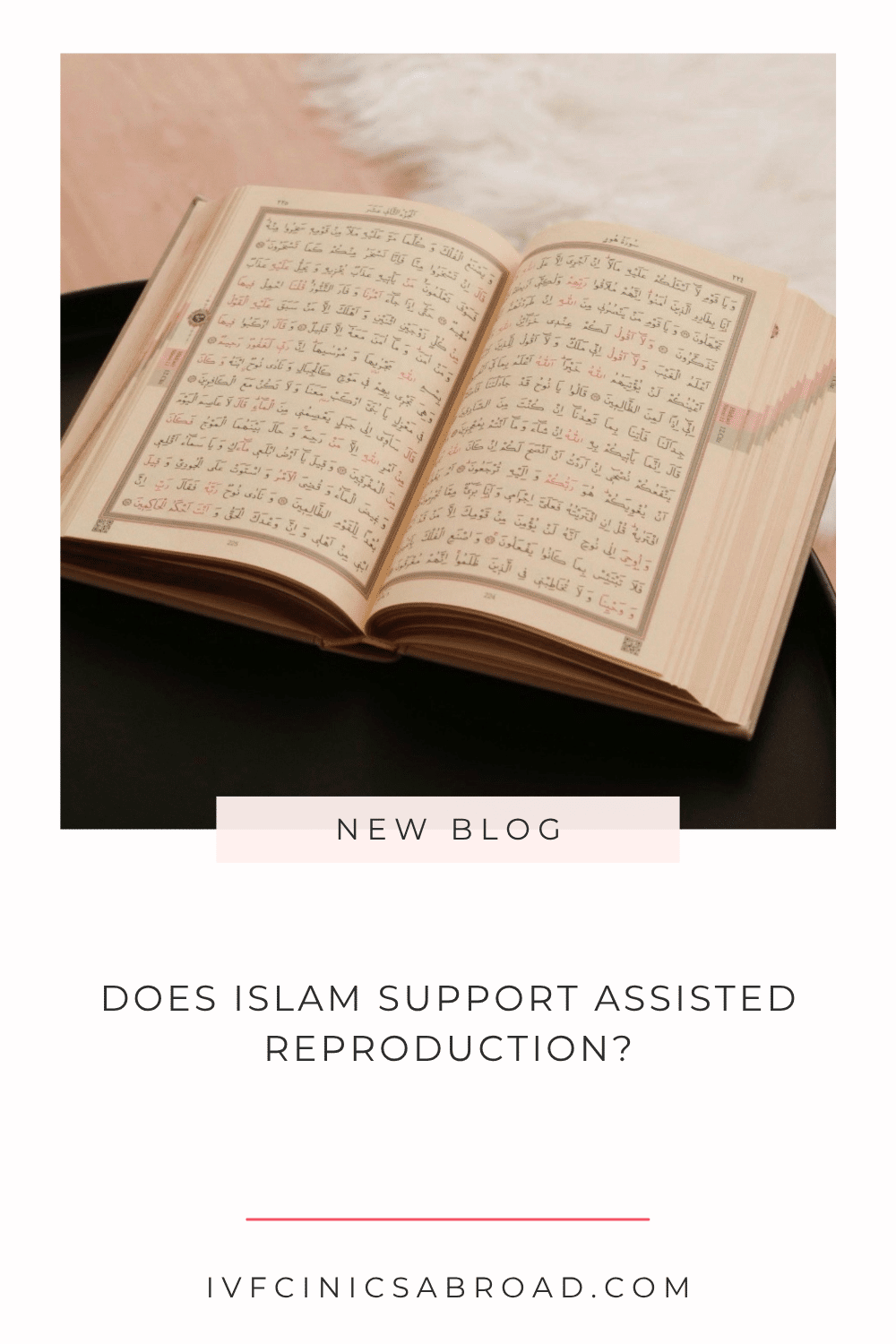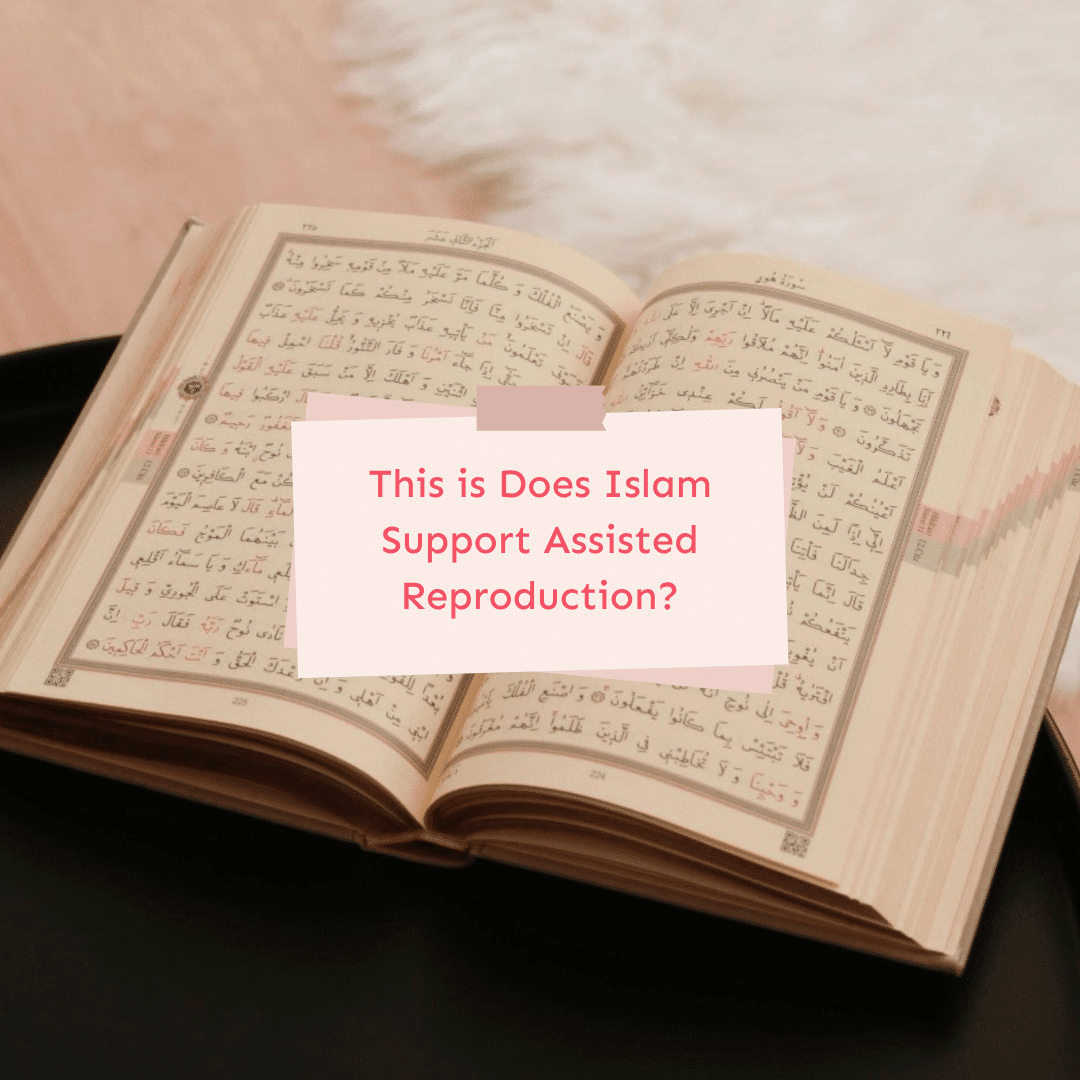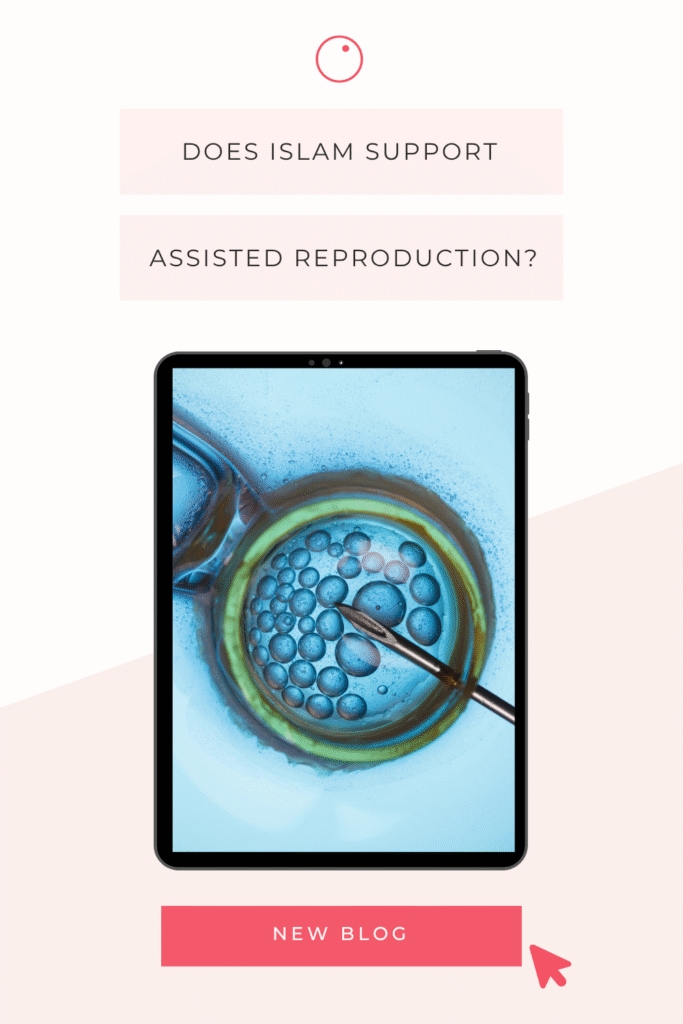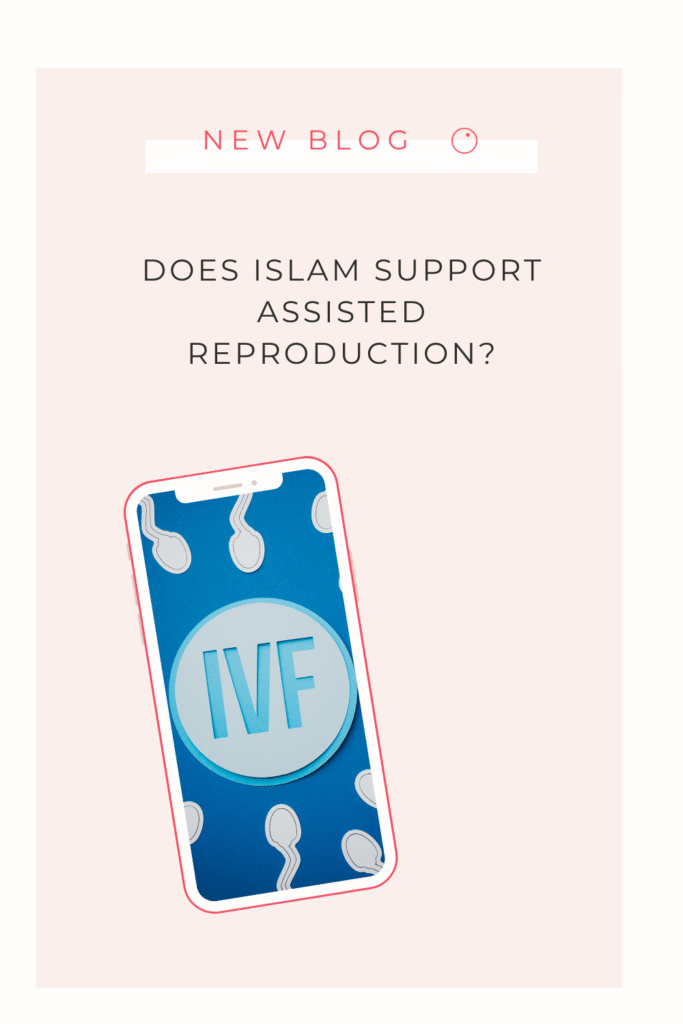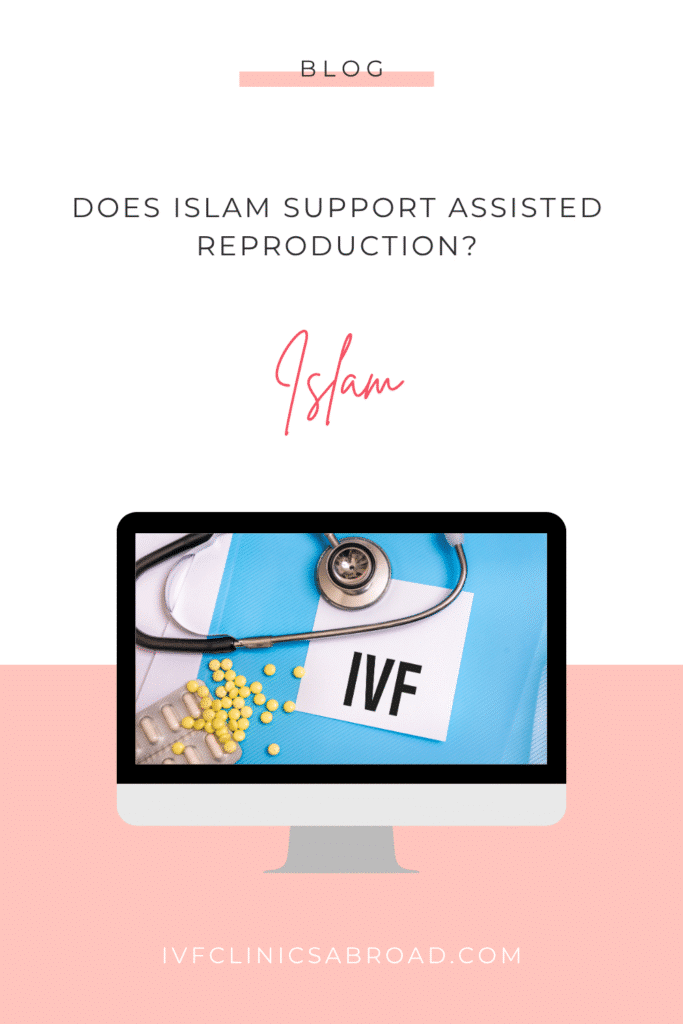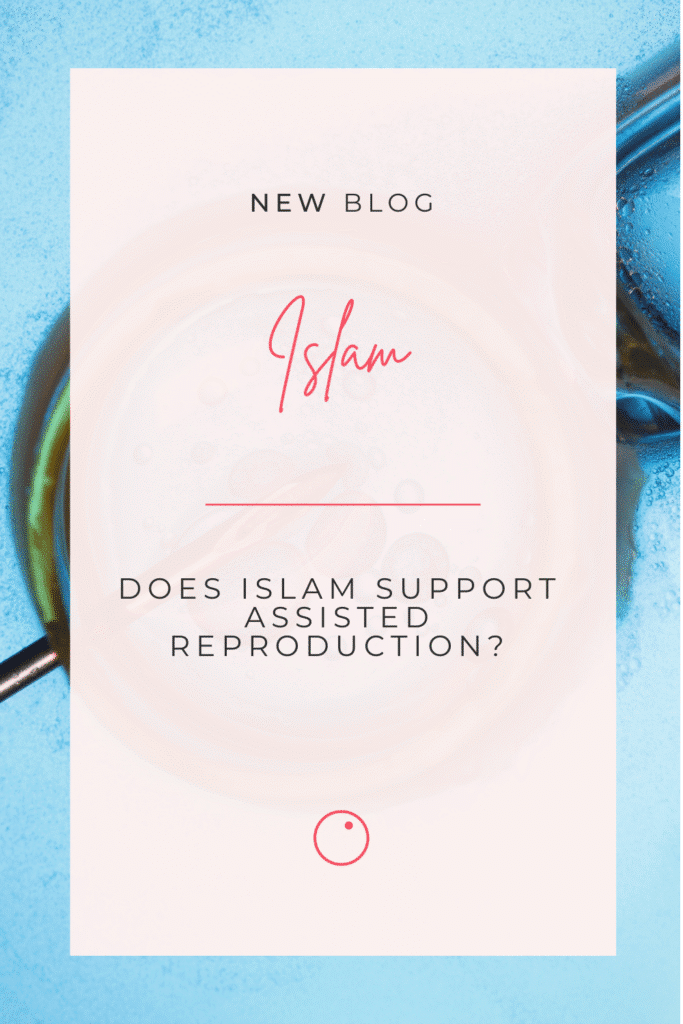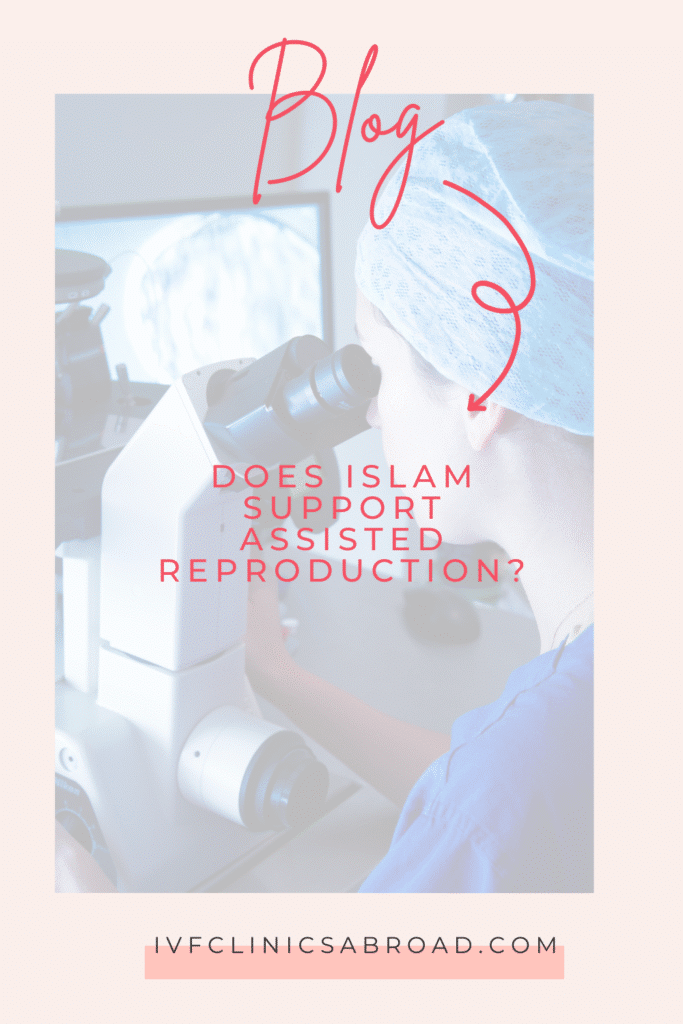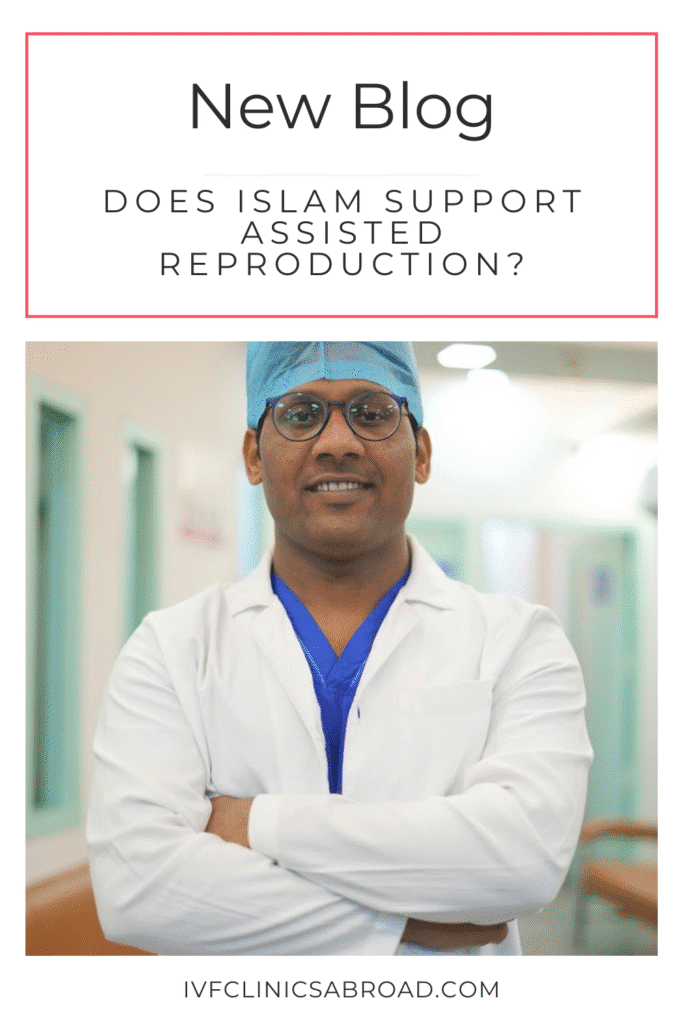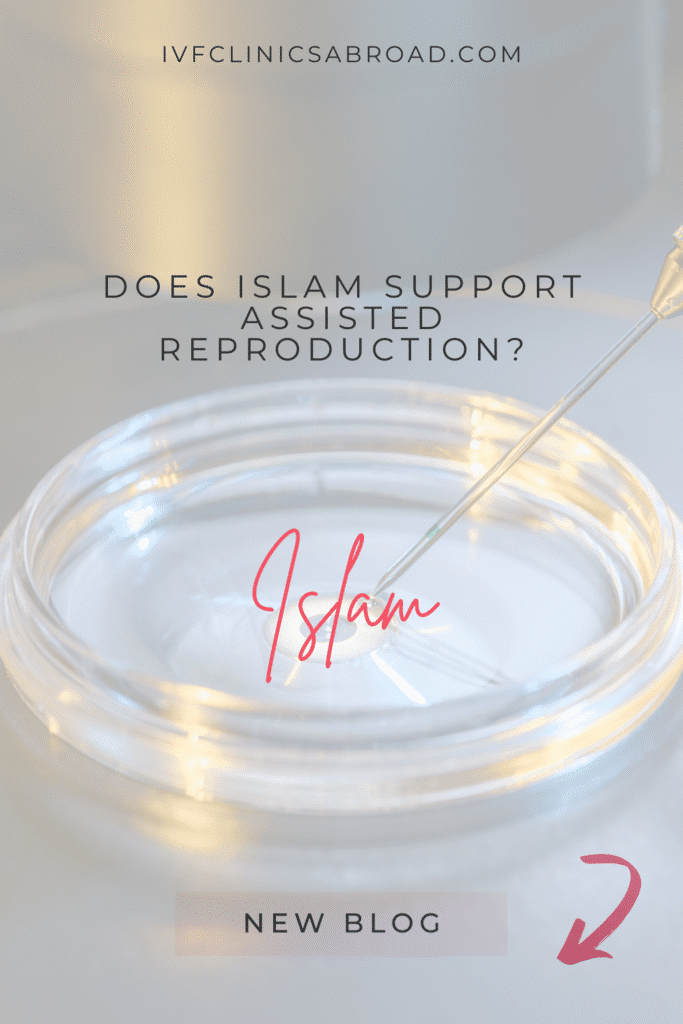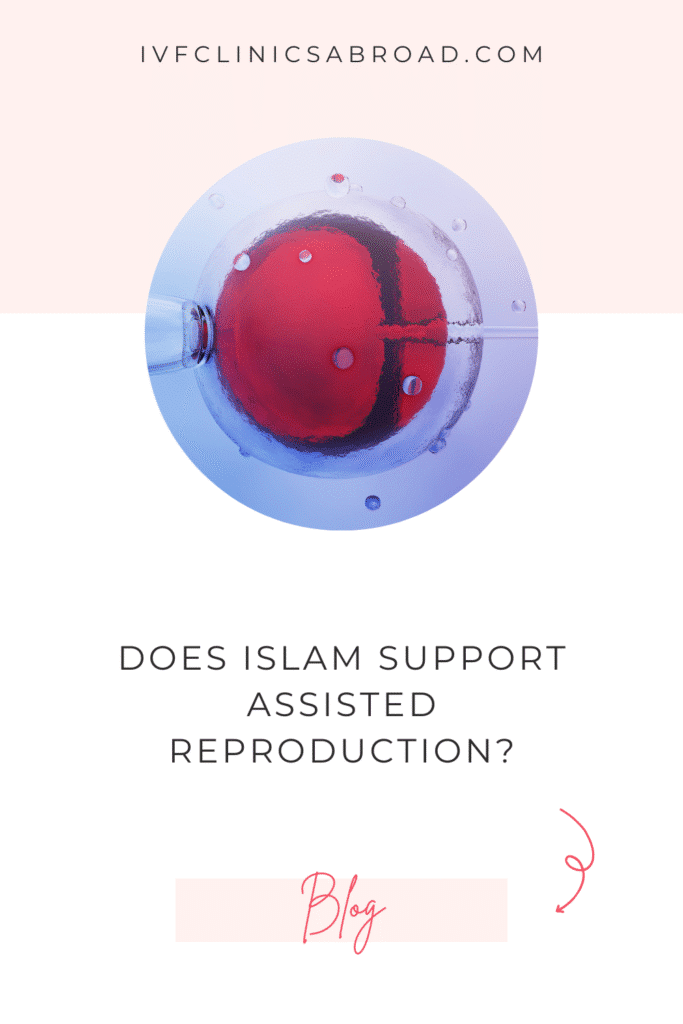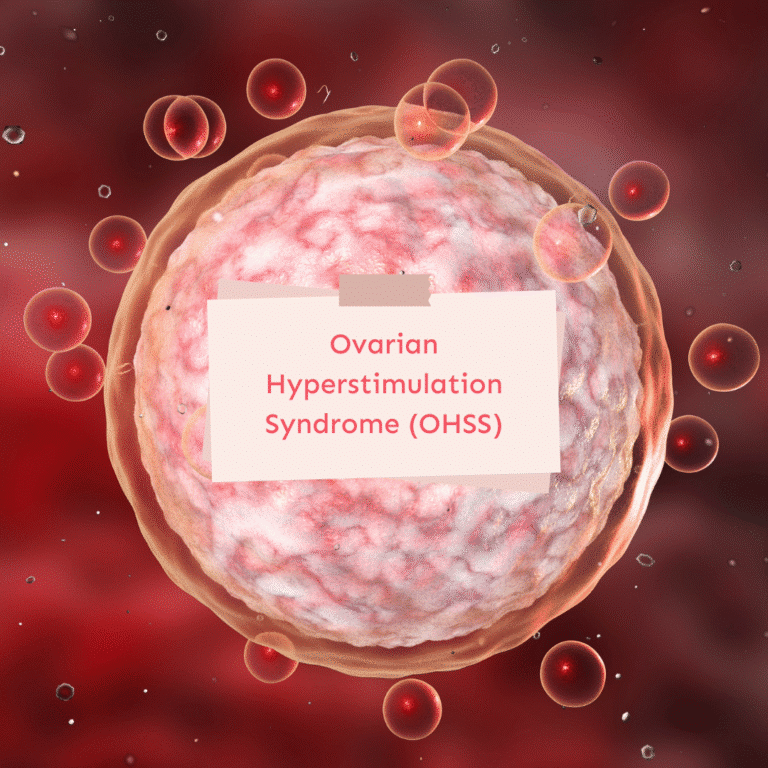Does Islam Support Assisted Reproduction? Exploring Islamic perspectives on human reproduction, medically assisted reproduction, and reproductive choices in Muslim countries.
Infertility affects millions of couples around the world, including those living in Muslim countries. And yet, when you’re dealing with something as deeply personal as reproductive treatment, it can be hard to know what’s actually allowed – and what isn’t – under Islamic law. You might find bits of information online or hear conflicting opinions from doctors or family members. But when it comes to assisted conception, especially treatments like IVF, embryo donation, or even gender selection, the religious and cultural aspects matter just as much as the medical ones. This raises the important question: Does Islam Support Assisted Reproduction?
In this article, we’ll guide you through what assisted reproduction means in the context of Islam – from the general Islamic perspective to the differences between Sunni and Shia interpretations. We’ll talk about where scholars agree, where things become more complex, and how reproductive medicine fits into your faith. Whether you’re curious about egg donation, PGD, or how Islamic scholars view third-party reproduction, we’ll help you understand the landscape – so you can make confident decisions that feel right for you. Ultimately, it is crucial to understand how Does Islam Support Assisted Reproduction? is perceived within these frameworks.
Infertility and assisted reproduction in Islam
Does Islam Support Assisted Reproduction? Understanding Diverse Perspectives
In many parts of the Muslim world, family life holds a central place in both religious belief and daily experience. The desire to have children is deeply rooted in Islamic tradition and is often seen as part of fulfilling one’s role within marriage. So when infertility becomes part of a couple’s journey, it’s not just a medical issue – it can touch every part of their emotional, social and spiritual world.
Islam has generally encouraged efforts to treat infertility, as long as these efforts stay within the boundaries of Islamic law. In fact, assisted reproduction developments in recent years have opened up new possibilities for couples who might not have had any options just a few decades ago. But navigating these technologies – especially IVF, embryo selection or donor-based treatments – can feel overwhelming. What is considered allowed? What crosses the line? And how do religious beliefs influence which treatments are available or accepted in different Islamic countries?
The good news is: Islam does not close the door on reproductive medicine. Instead, it offers guiding principles that help define what is permitted, what is discouraged, and what depends on the specific situation or intention behind the treatment. Understanding those nuances can help you explore your options with more clarity – and more peace of mind.
Why family and fertility are central in Islamic tradition
In Islamic culture, having children is often seen not just as a personal hope but as a shared goal between spouses – something that strengthens the marriage and continues the family line. The Qur’an and Hadiths refer to children as a gift, a source of joy, and a part of one’s legacy. This explains why infertility can be experienced as a major challenge, even in younger couples. The urge to seek help is strong – and religiously supported – when the goal is to protect the marital bond and enable procreation through means that align with faith.
Efforts to overcome infertility are often welcomed, provided they don’t involve practices that break the sacred bond between a married couple. Within Sunni Islam especially, there’s a strong emphasis on maintaining that bond throughout the treatment process, which influences the religious stance on certain assisted reproductive techniques. In contrast, Shia interpretations can sometimes be more flexible – something we’ll explore later in this article.
Understanding infertility as a medical and spiritual challenge
Infertility is increasingly recognised as a medical condition that affects both men and women. In Islamic countries, where the pressure to conceive can be high, couples often feel a deep urgency to act – but may also hesitate if they are unsure what’s religiously acceptable. Beyond the physical struggle, infertility can trigger intense emotions: guilt, shame, confusion, and sadness. Many women describe it as a silent burden, especially when conversations around reproduction are shaped by tradition, modesty and family expectations.
From an Islamic perspective, infertility is not seen as a punishment, but as a test – and possibly an opportunity to grow in faith. That’s why medically assisted reproduction, when done within the ethical boundaries of Islam, is considered a positive and hopeful step. And while not all reproductive treatments are allowed in every case, the general view supports using modern medicine to treat infertility, so long as it honours the values of marriage, respect, and intention.
Islamic rulings on reproductive medicine
Islamic rulings on assisted reproduction are guided by one main principle: treatments must respect the sanctity of marriage. As long as the process involves a married couple, and no third party is introduced, most Islamic scholars agree that it is allowed to seek medical help for infertility. This includes procedures such as in vitro fertilisation (IVF), embryo transfer and, in some cases, freezing of gametes. However, the religious acceptance of certain treatments can depend on specific details – like the source of the egg or sperm, or the timing of the procedure in relation to the marriage.
Islamic scholars and jurists have written extensively on assisted reproductive technologies, and many fatwas have been issued over the past decades to clarify what is allowed. The general rule is that assisted reproduction is permitted when it supports a couple in their efforts to procreate, without involving donors or surrogates. These rulings aim to protect family lineage, uphold modesty and prevent confusion about parenthood – all of which are core concerns in Islamic law.
It’s important to note that while many Muslim countries follow similar religious guidelines, there can be differences in how these rulings are interpreted or applied – especially between Sunni and Shia communities, which we’ll discuss in more detail later. Still, the use of assisted reproductive technology is growing, and religious dialogue continues to evolve as new techniques emerge.
What is permitted with IVF and embryo transfer
IVF is widely accepted in the Islamic world as long as both the egg and sperm come from a legally married couple. The procedure involves fertilising an egg outside the body – in vitro – and then transferring the resulting embryo back into the uterus. From a religious point of view, the embryo is seen as part of the couple, and the entire process is considered a continuation of their marital relationship. The goal – procreation within marriage – is maintained.
Embryo transfer is also permitted under the same conditions. However, some Islamic scholars highlight an important detail: the embryo must be transferred during the time when the marriage is still valid. This means that if the husband dies or the couple divorces, transferring a previously created embryo would not be allowed, since the marital contract no longer exists. There are rare exceptions, but they depend on specific rulings and circumstances.
What’s not permitted is using donor eggs or donor sperm in IVF. Introducing another person’s genetic material is seen as interfering with the couple’s exclusive bond – and may raise issues around identity, inheritance and family integrity. In Sunni Islam, this is often equated with a form of adultery, even if there is no physical contact involved.
When freezing sperm or eggs is allowed
Freezing of sperm or eggs – also known as gamete cryopreservation – can be permitted in Islam under certain conditions. The most common reason is when one partner is about to undergo medical treatment, such as chemotherapy or radiotherapy, which could affect fertility. In such cases, storing gametes in advance allows the couple to preserve their chance of having children in the future, as long as the use of those gametes happens within the duration of the marriage.
Freezing embryos is also possible, and many Islamic rulings support this – again, as long as the embryo transfer takes place while the couple is still married. Once the marriage is no longer valid, the stored embryos may no longer be used. This restriction is rooted in the Islamic understanding of marriage as a contract that defines the legitimacy of reproduction. Using gametes or embryos outside of that framework raises ethical and legal questions, and is generally not accepted in Islamic law.
“Faith and fertility don’t have to be in conflict – with the right guidance, you can honour both.”
Nathalie Wiederkehr
Reproductive choices and PGD in Islam
Thanks to medical advances, it’s now possible to examine embryos very early in the IVF process – even before pregnancy begins. One of the most talked-about techniques is preimplantation genetic diagnosis (PGD), a form of embryo testing that allows doctors to look for genetic conditions just a few days after fertilisation. For couples who carry certain inherited diseases, or who have experienced repeated miscarriages, PGD can offer reassurance and help avoid heartache later in the process.
In the Islamic world, PGD is generally viewed with openness – as long as it is used for medical reasons. Many scholars agree that selecting embryos to avoid severe illness is a form of protecting life, not interfering with it. Still, PGD touches sensitive areas: questions about destiny, the ethics of choice, and the boundaries between human reproduction and divine will. That’s why there is ongoing debate about when – and why – embryo selection is appropriate, and where the limits lie.
Understanding the Islamic perspective on PGD means looking closely at both the intention behind the treatment and the timing. PGD is done before pregnancy is established, which makes it fundamentally different from abortion or selective termination. For this reason, many scholars permit it as part of assisted reproductive technologies, especially if it helps a married couple treat infertility or prevent serious inherited conditions.
How PGD works and what Islamic scholars say
PGD involves removing a few cells from an embryo around day three after IVF fertilisation. These cells are tested for genetic disorders – such as cystic fibrosis, muscular dystrophy, or chromosomal abnormalities like trisomy 21. Embryos that are unaffected can then be selected for transfer to the uterus. This way, the couple avoids the difficult choice of ending a pregnancy later on, as the medical decision is made before implantation.
Islamic scholars from various institutions – including the Islamic Fiqh Council and the International Islamic Center for Population – have issued rulings supporting PGD for disease prevention. The main condition is that the process must not involve harm, must respect the embryo as potential life, and must stay within the ethical boundaries of marriage. Using PGD to reduce suffering or improve the health of future children is often seen as a responsible application of reproductive medicine.
In contrast, using PGD for non-medical reasons – such as gender preference – is more controversial, especially in Sunni contexts. Some scholars allow it in very specific cases, such as when a couple already has several children of the same sex. Others believe that gender selection should only be done for medical necessity, not personal choice. These differences reflect wider debates about the role of choice in matters of procreation and divine will.
Islamic views on embryo selection and genetic screening
The use of genetic screening raises deeper ethical questions in Islamic bioethics. At what point does selection become a form of rejection? How do we define illness, and who decides what is acceptable? While PGD can prevent painful outcomes, it also introduces a layer of decision-making that must be handled with care – both medically and spiritually.
In Islam, embryo selection is not considered the same as altering creation. It’s seen more like a diagnostic tool – similar to other medical tests used to protect health. However, the line is usually drawn at enhancing traits or making cosmetic choices. Scholars warn against turning reproduction into a form of control, where only certain embryos are seen as “worthy” of life. That’s why PGD must always be guided by clear intentions and an awareness of ethical responsibility.
The discussion around PGD is ongoing, and it touches many families considering IVF. While Islamic scholars continue to study its implications, the current consensus allows its use under specific conditions – particularly when it helps reduce suffering or increase the chance of a healthy child. For many couples, this makes PGD an important option on their path to parenthood.
A recent publication by Muslim jurists confirms that PGD may be used for medical purposes without violating Islamic principles, as long as embryo screening occurs before ensoulment and within marriage (Matthews, 2021).
Sunni Islam and the limits of third-party reproduction
One of the most defining aspects of Sunni Islamic rulings on assisted reproductive techniques is the strict emphasis on preserving the exclusivity of the marital bond. According to Sunni scholars, any form of third-party involvement in reproduction – including egg donation, sperm donation or embryo donation – breaks this bond and is not permitted. These rulings are grounded in the belief that family lineage must remain clear and uncontaminated by outside genetic material. That’s why Sunni positions on assisted conception remain cautious, especially when it comes to donor-based treatments.
For many Sunni Muslim couples, this creates a difficult situation. While IVF using their own gametes is allowed, those who cannot produce viable eggs or sperm have no religiously accepted alternative. The form of third-party reproductive assistance that may be considered elsewhere – such as anonymous donors or surrogates – is not allowed in Sunni Islam. This ban on third-party reproductive assistance is rooted in the principle that procreation should be limited to what occurs naturally or through medically assisted methods within marriage.
The Islamic Fiqh Council, one of the most respected institutions for Sunni legal opinion, has repeatedly reinforced this stance. According to their fatwa on assisted reproduction, treatments like artificial insemination and IVF are permitted, but only if they involve the husband and wife. Anything beyond that – including the use of donor material – is regarded as a violation of Islamic law and family ethics.
Why sperm or egg donation is not accepted in Sunni interpretation
Sperm and egg donation are seen by many Sunni scholars as introducing a third person into the marital relationship, which is viewed as a breach of religious and moral boundaries. Even though there is no physical act of adultery, the genetic contribution from an outside party is seen as comparable in terms of its impact on lineage and inheritance. For this reason, sperm donation is treated not just as a medical issue, but as a serious ethical concern.
In some cases, couples may feel pressured to accept donor material because it’s the only remaining medical option. But in the Sunni Muslim world, this path is not supported. The result is that some couples continue treatment with their own gametes, while others may stop altogether – or explore treatment options in countries with different interpretations, though always with a sense of religious responsibility.
The Committee for Monitoring Assisted Reproductive Technologies and the Islamic Organization for Medical Sciences have also reinforced this ban, highlighting the long-term social and legal consequences of blurred parenthood. According to Sunni Islamic law, the child must be clearly linked to a married couple, with no doubt about the biological connection.
Embryo transfer after death or divorce
Another sensitive area in Sunni Islam is the use of previously created embryos after a marriage has ended. Whether through divorce or death, once the marriage contract is no longer valid, the embryo may not be transferred to the woman’s uterus. The reasoning is simple: reproduction is only permitted within the boundaries of an existing marriage. Without that framework, embryo transfer is not considered legitimate.
This can be particularly painful for women who still carry hope after losing their partner – emotionally or biologically. But under Sunni Islamic law, the contract of marriage defines both the right and the timing of assisted reproduction. There may be isolated cases where different opinions exist, but the mainstream Sunni view holds that once the marriage ends, so does the right to reproduce using stored embryos.
These positions highlight how deeply assisted reproduction is tied to religious ethics in Sunni Islam. While some treatments are welcomed, others are clearly not – especially when they involve third-party reproduction or go beyond the active timeframe of a valid marriage.
Shia views on assisted reproduction
While Sunni interpretations are generally strict when it comes to third-party reproduction, Shia scholars – particularly those in Iran and parts of Lebanon – have developed a different approach. In certain cases, they allow treatments that involve donor gametes or surrogacy, as long as specific religious guidelines are followed. This more flexible interpretation reflects a broader view of assisted human reproduction as a form of treatment rather than interference in divine matters.
The Islamic Republic of Iran, for example, has legal frameworks in place that permit embryo donation, egg donation and even gestational surrogacy. These developments are based on religious rulings issued by leading Shia authorities such as Ayatollah Ali Khamenei. His fatwa opened the door to a range of assisted reproduction techniques that are otherwise prohibited in Sunni Islam. The aim, according to Shia scholars, is to address the suffering caused by infertility while still respecting the moral and legal framework of Islam.
This does not mean that all forms of assisted reproductive technology are freely allowed in every case. Each treatment must still be judged on its intention, the marital status of the couple, and the legal procedures surrounding the donation. In some cases, temporary marriage contracts (mut‘a) are used to align the procedure with religious law – a concept unique to Shia jurisprudence.
When third-party reproduction is permitted in Shia Islam
In Shia-majority settings, it is sometimes permitted for a married couple to receive donated sperm, eggs or embryos, particularly if they have exhausted other medical options. The use of a donor is seen not as an act of betrayal or adultery, but as a medical necessity, as long as transparency and consent are ensured. The role of intention – niyyah – plays an important part in these rulings. If the aim is to treat infertility and protect the integrity of the marriage, then the procedure may be allowed.
This approach highlights the importance of context within Islamic law. While many Shia scholars still share concerns about third-party involvement, they also recognise the emotional and spiritual burden infertility can place on a couple. As a result, third-party reproduction is not treated as universally forbidden, but rather as an option that must be managed carefully, with guidance from both religious leaders and medical professionals.
Some Shia families choose this path discreetly, often in countries where the laws support it. Others still prefer to avoid it for personal or cultural reasons. But what’s important to know is that the conversation is not closed – and the possibilities exist within the framework of Shia Islamic law.
Surrogacy and embryo donation in Shia-majority regions
Surrogacy is another area where Shia interpretations differ. While completely prohibited in Sunni Islam, gestational surrogacy has been approved by some Shia scholars under strict conditions. The woman who carries the pregnancy is not genetically related to the child, which helps avoid complications regarding lineage. However, she must not be married to someone else during the process, and her role must be clearly defined in legal and religious terms.
Embryo donation, too, is legally accepted in Iran and practised in a regulated medical environment. Couples who receive donated embryos often undergo legal counselling and are required to register the child according to national laws. These measures are designed to protect the child, clarify parental responsibility and avoid future legal confusion.
These practices show how Shia Islamic law has adapted to the realities of modern reproductive medicine, especially in regions with access to high-quality fertility care. While the ethical discussions continue, there is a clear willingness among Shia scholars to engage with medical science and find solutions for families facing difficult reproductive challenges.
Ethnic and religious diversity across the Middle East
The way assisted reproduction is viewed and practised varies greatly across the Middle East. While Islamic law offers a shared foundation, interpretations differ not just between Sunni and Shia communities, but also across regions, cultures, and legal systems. These differences reflect a complex mix of religious beliefs, national legislation, medical infrastructure, and local customs. That’s why understanding reproductive choices in the Middle East means looking beyond religion alone – and considering how families navigate faith, medicine and modern life in practical terms.
In some Muslim countries, reproductive technologies like IVF are widely available and supported by public health systems. In others, access may be limited or regulated by religious courts. And even within a single country, clinics may follow different policies based on the interpretation of local religious authorities. These layers of diversity can make it difficult to know what’s really possible – and what is allowed – depending on where you live, who you ask, and which kind of support you’re seeking.
What remains constant, however, is the importance of family, respect for marriage, and the desire to find ethically sound paths to parenthood. Whether you’re navigating infertility as a Sunni Muslim, a Shia believer, or someone influenced by both traditions, your experience will likely reflect a mix of personal values, medical advice and religious interpretation.
How beliefs and medical options vary across Muslim countries
Muslim countries differ not only in their religious demographics, but also in how reproductive medicine is regulated and delivered. Some follow strict Sunni guidelines, which may include a complete ban on third-party reproduction, while others take a more permissive approach under Shia law. In parts of the Middle East and North Africa, public policies on IVF and gamete donation are shaped by both religious councils and state health ministries. This creates a patchwork of rules and expectations – even among countries that share similar cultural or linguistic backgrounds.
Populations in the Middle East are not homogeneous. Ethnic and religious diversity influences how infertility and assisted reproduction are talked about, treated, and sometimes even stigmatised. While some communities actively encourage treatment of infertility through medically assisted methods, others may remain cautious or silent on the topic. This is especially true for sensitive procedures like embryo donation or gender selection, which may be available in practice but rarely discussed openly.
It’s also worth noting that some couples travel abroad for reproductive treatment – a phenomenon often referred to as reproductive tourism. This trend reflects both the limitations and opportunities in the region, as well as the personal importance many people place on building a family, even if it means crossing borders or finding creative legal and ethical solutions.
Combining faith and reproductive medicine in real-life decisions
Choosing a reproductive path that aligns with your faith isn’t always easy. For many Muslim couples, especially those facing female infertility, the process involves more than just medical appointments – it also includes discussions with family, religious advisors, and sometimes legal authorities. You might be weighing your desire to become a parent against religious rulings that limit certain procedures, or wondering how much flexibility your interpretation of Islam allows.
In practice, every journey is personal. Some women choose to pursue IVF within the boundaries of their own marriage, while others may consider third-party options abroad. Some find comfort in consulting with Islamic scholars, while others rely on their own understanding of intention, dignity, and trust in God. In all cases, the key is to make informed choices – not out of fear or pressure, but out of clarity and confidence in your values.
Whether you’re at the beginning of your journey or already considering treatment, knowing that others have faced similar questions can be deeply reassuring. You are not alone – and support is available to help you navigate this complex but hopeful path.
Support and next steps for your fertility journey
How to find options that respect your values
If you’re exploring assisted reproduction and wondering how to stay true to your personal beliefs, you’re not alone. Many women – single, married, religious or simply thoughtful about their path – find themselves asking the same questions. What options do I really have? Which clinics respect both my hopes and my boundaries? And how do I make sense of medical terms, legal rules and religious guidance that sometimes seem to contradict each other?
The truth is: there’s no one-size-fits-all solution. Your journey is yours – and the decisions you make should reflect what feels right for you. For some, that means IVF with PGD to avoid a serious condition. For others, it might include considering gender selection, especially when family balance is important or when personal circumstances call for it. In all cases, the goal is the same – to build a family in a way that feels safe, respectful and informed.
What matters most is that you have access to clear, trustworthy information – without pressure, judgment or confusion. And that’s exactly what we aim to offer.
Download the guide or book a personal consultation
If you’re looking for real-life information – not just legal theory or clinic marketing – we’ve created a detailed guide to help you. It includes a country overview of what’s allowed, where gender selection is legally possible, and how clinics differ when it comes to things like embryo donation, PGD, or treatment of infertility in women over 40.
You’ll also find an example of a clinic in Northern Cyprus that offers options for IVF with PGD, including prices and success rates – so you can start comparing based on facts, not promises.
And if you prefer personal guidance, we’re happy to support you with a private consultation. We’ll help you find clinics that align with your values and walk you through the details – step by step, in your own language, and at your pace.
Whatever you decide: you’re not alone on this journey.
